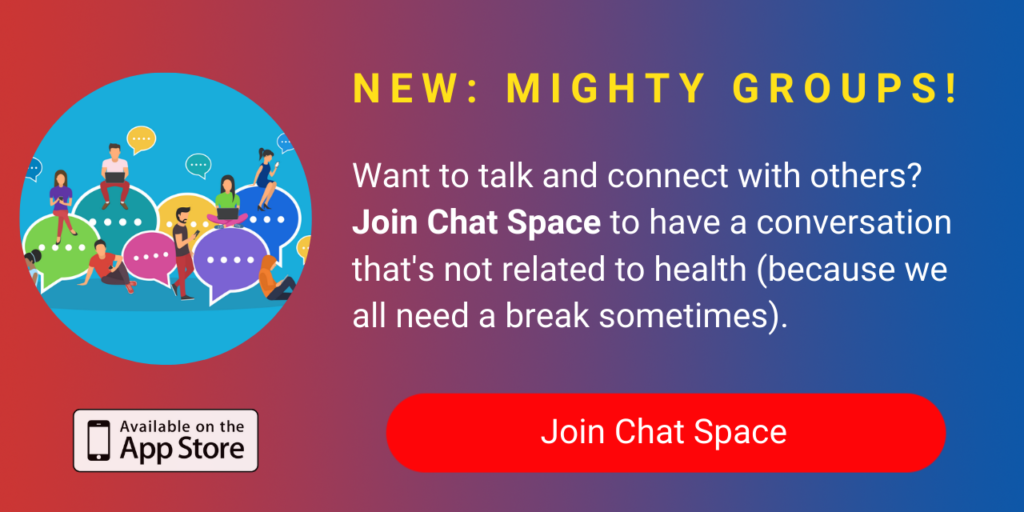We Need to Talk About Mental Illness Discrimination in the Workplace
For autistic youths, the unemployment rate sat around 65% throughout most of the articles I found. In 2017, the unemployment rate for people living with schizophrenia was between 70% and 90%. With bipolar disorder alone, one study shows that 88% of people reported that their condition greatly affected how they performed and functioned at work.
This, to me, seems like a very grim and bleak landscape for people living with a mental illness to traverse and acts as another shining example of what they have to face on a daily basis.
Furthermore, even when a person with a mental illness is able to get through an interview and land a job, they typically feel forced to hide their mental health issues and are still not usually able to ask for accommodations, small or large.
Case in point, I once asked for a small list of accommodations at one job and also briefly brought up my mental health with another boss when they were pestering me by asking what was troubling me, and you know what? I was promptly fired from both jobs, either just because of that initial conversation or something related to it.
Businesses say and promise that they can’t discriminate against anyone, whether it’s because of the color of someone’s skin, sexual orientation or mental state (and so on), and even have paragraphs declaring that all over their job applications, but it feels like it’s all nonsense and that they still discriminate against whoever they want. What then adds insult to injury is that, in many cases, there is very little legal recourse that a person can take unless they have the kinds of lawyers that can take on their past employers, or they have both the money and time to take them to court. So, just like society seems to want them to, they’re really supposed to just move on and pretend like everything’s OK.
Many people still don’t feel comfortable bringing attention to their mental illness at work in this day and age, when they should actually be encouraged and accepted to do so. Plenty of LGBTQIA+ people hide in the shadows at work, some non-White people still walk around on eggshells at their jobs, and many mentally ill people stay silent about their diagnoses from fear of being rejected and/or fired.
Additionally, mentally ill people sometimes genuinely need some sort of accommodation(s) in order to succeed at work or school, but they are unfortunately fighting an uphill battle against a system that is just utterly and terribly failing them. Tale a look at the statistics in points 3, 4 and 7 of this Bustle.com article, particularly with that last one regarding missing work. Not only can that be a result of multiple other diagnoses, but it cannot simply be boiled down to “laziness” or someone just not caring enough to go into work. People can think that as much as they want, especially bosses and managers, but they are very much misinformed and woefully ignorant.
When mental illness gets bad enough, not only does someone fight through psychiatric symptoms but physical as well. Depression tends to make its victims unable to get out of bed because their bodies feel as heavy as a load of bricks. Anxiety can induce panic attacks, nausea and vomiting. Obsessive-compulsive disorder can make it feel impossible to leave the house due to being afraid of becoming infected, tainted or other obsessions. People can say “it’s all in your head” as much as they’d like, but that doesn’t make it any less real for the people dealing with these condition(s).
Additionally, another form of discrimination in the workplace or otherwise would be mentally ill people being bullied or having others become hostile towards them. Despite the kind of pictures that society has painted of the mentally ill through mainstream media, people with a mental illness are more likely to be victims of violence than the general population, not the other way around. Also, 45% of targets of harassment, violence, or bullying are people with stress-related health problems, be they mental, physical, or both.
For me, not only have I experienced the same sort of harassment that unfortunately plenty of other women have in the workplace (i.e., sexual harassment, especially in the culinary industry several times), I have been talked down to, made to feel inferior and singled out in numerous workplaces of mine due to my mental health affecting my ability to properly work. Overall, no one at any of those jobs were truly aware of my condition (of course), but those instances of being treated coldly particularly happened when I was in a poor mental state and/or having very “dark days” (alluding to symptoms breaking out worse those days than others).
At work, I have been yelled at, made fun of, had my mistakes pointed out in front of large crowds, put down publicly, talked about behind my back, and so on. Years ago, before I had even been diagnosed with autism — I was diagnosed very late, as an adult — a person I worked with spread the word that I was autistic behind my back, all throughout the workplace, and when I finally confronted them, they acted like it wasn’t even a problem. I, of course, told them to knock it off and to stop talking about me behind my back, but the damage had unfortunately already been done. I am sure these examples could be related to plenty of other mentally ill people (or other people in general) as well.
Another thing people fail to realize is that people such as myself don’t just come crashing down into disability or unemployment from sheer laziness or lack of ability. If there is one thing I can say I have done, it would be that I have absolutely, without a doubt, always tried to do my best no matter the circumstances. Whether I have been meekly peering out from behind a shroud of depression, dissociating into a completely different world, or have been struggling due to the newest side effects of a medication, I have viciously fought tooth and nail to be the person I am today and to get to where I am right now.
But you know what? Disability, unemployment or mental health issues be damned! I believe living with mental illness doesn’t always have to seem like a bleak death sentence. People can try to make plans to become involved with the things they didn’t have the time for before, they can become more engulfed in their hobbies, or perhaps they can explore the places that they didn’t have the energy for in the past, all while taking it as easy as they need to and tending to their needs however they may need to.
My psychiatrist actually compared it to being retired — just because someone isn’t working doesn’t mean they immediately need to turn into a hermit. They can still try to enjoy life however they want to, whether that’s through volunteering, creative projects or spending time with family. It doesn’t entirely matter how they spend their time, just as long as they attempt to put a positive spin on it and get some sort of enjoyment from it!
My severe mental health issues have been some of the hardest, most terrible things that I have had to constantly deal with in my life, but as I have gotten older, I have also tried to teach myself to look on the brighter side of life more often and focus more on the positives in my life, instead of consistently just staring at the negatives.
It’s difficult, it takes time and it needs to be practiced, but once you are able to start crossing over that line, it gets easier the more you do it. Life is indeed worth living — you just need to learn what exactly in your own life makes it worth it to you.
Getty Images photo via fizkes


